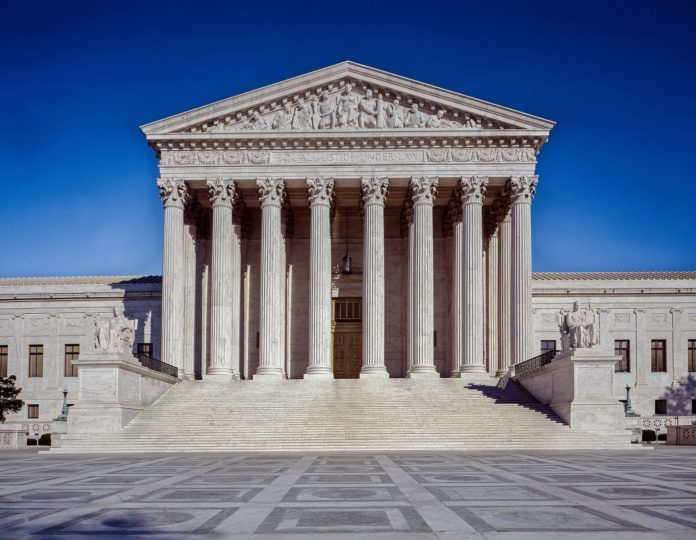
Today, the U.S. Supreme Court agreed to hear an appeal challenging a serial plaintiff’s standing as an Americans with Disabilities Act “tester.” The case asks the court to resolve a circuit split in a number of appeals stemming from the same plaintiff.
Deborah Laufer has filed more than 600 lawsuits in federal courts across the country primarily aimed at small hotel and lodging operators. Laufer lives in Florida and uses a wheelchair. Her complaints are nearly identical, and claim that while Laufer doesn’t plan on visiting the hotels any time soon, she might in the future. In lawsuits, Laufer has described herself as an advocate for people with disabilities whose lawsuits assert and enforce protections in public accommodations.
Laufer’s complaints are usually based on Title III of the ADA and often claim that, as public accommodations, they don’t offer adequate information online about room accommodations for people with disabilities in violation of ADA. While the U.S. Attorney General is tasked with ensuring public accommodations meet the requirements of ADA, Laufer claims the office isn’t aggressive enough, which creates the need for her lawsuits.
In 2020, Laufer sued Acheson Hotels, the owner of a small lodging facility on the southern coast of Maine called The Coast Village Inn and Cottages. She claimed that the hotel’s website had inadequate information about room accessibility.
A federal district court dismissed Laufer’s standing and found she had no intentions of ever actually visiting the hotel, wasn’t injured and lacked Article III standing. But the First Circuit Court of Appeals reinstated the complaint and found that even if she had no plans to visit the hotel, she suffered injuries under Article III of “feelings of frustration, humiliation and second-class citizenry.” In ruling Laufer had standing, the First Circuit joined a growing split of federal appeals courts driven by numerous lawsuits from Laufer.
Laufer is the same plaintiff who sued a small Colorado hotel, The Elk Run Inn in Craig, on nearly identical grounds, claiming the hotel’s online reservation system lacked information about disability accessibility. A district court dismissed Laufer’s claims for lack of standing that was held up on appeal to the 10th Circuit in January 2022. The 10th Circuit found that her complaint wasn’t concrete or particularized and while ADA “testers” could have standing regardless of if they ever plan to book a room, Laufer still didn’t satisfy standing requirements.
The Second Circuit Court of Appeals came to a similar conclusion in March 2022 as did the Fifth Circuit in April 2021. The 11th Circuit Court of Appeals found in March 2022 Laufer could have standing as a tester if her allegations are true.
Now on appeal to the U.S. Supreme Court, Acheson Hotels is asking for clarification on “tester” standing.
“A cottage industry has arisen in which uninjured plaintiffs lob ADA lawsuits of questionable merit, while using the threat of attorney’s fees to extract settlement payments,” wrote attorneys for Acheson Hotels in its petition. “These lawsuits have burdened small businesses, clogged the judicial system and undermined the Executive Branch’s exclusive authority to enforce federal law.”
In addition to resolving the current circuit split, the appeal asks the U.S. Supreme Court to clarify how two earlier rulings interact. All circuit courts have attempted to reconcile the Supreme Court’s 1982 ruling in Havens Realty Corp. v. Coleman, which established possible “tester” standing, and its more recent 2021 ruling in TransUnion LLC v. Ramirez that found plaintiffs must show concrete harm to seek damages against private defendants.
“This Court’s review is warranted because only this Court can provide guidance on what its own precedents mean,” wrote the petition.
Laufer has been represented by Florida attorney Thomas B. Bacon who in December declined to file a response brief to the petition.
A handful of organizations — The Restaurant Law Center, DRI Center for Law and Public Policy, Retail Litigation Center, Inc., Center for Constitutional Responsibility and U.S. Chamber of Commerce — have filed amicus briefs in support of Acheson Hotels.
The briefs are urging the court to rule in favor of the hotel and claim that “tester” plaintiffs rarely help enforce ADA and harm businesses.
The appeal will likely be heard later this year, either in the current Supreme Court term that ends this summer, or the 2023 term that starts in the fall.

